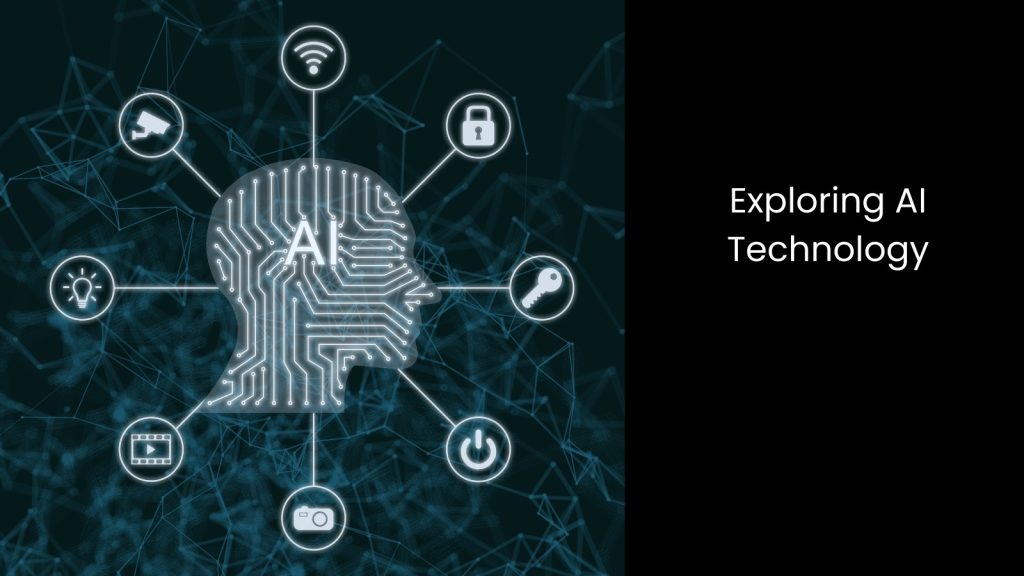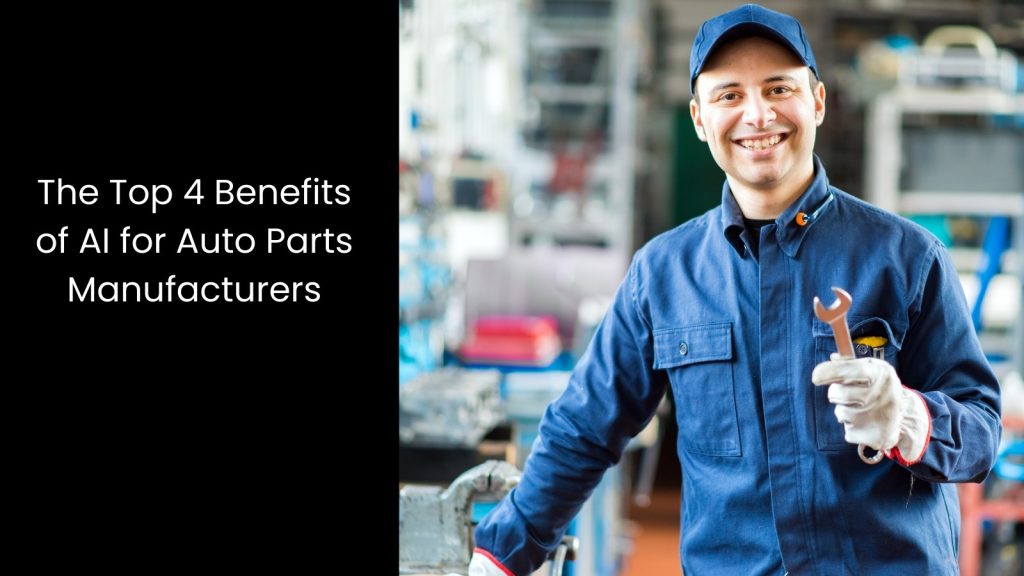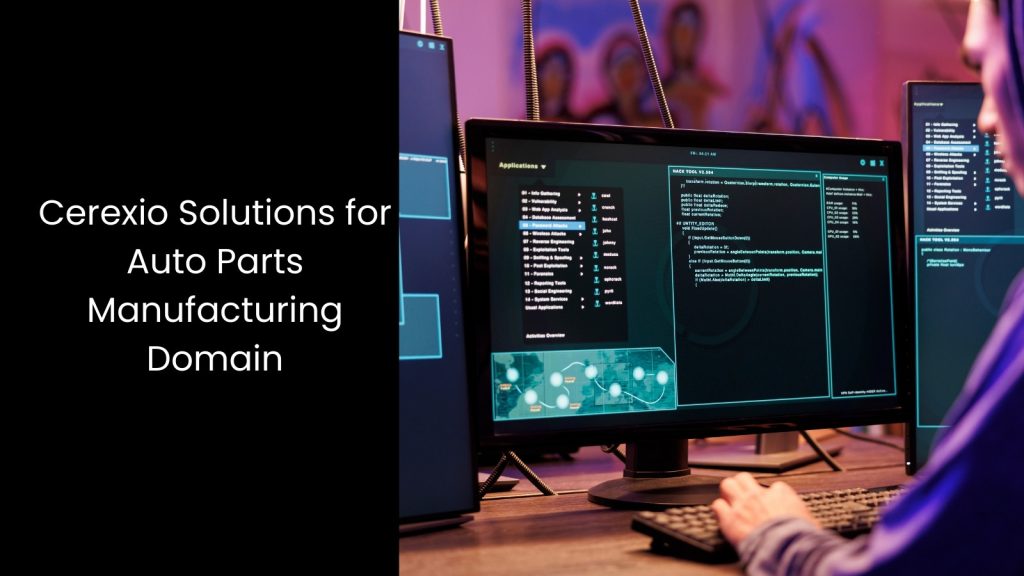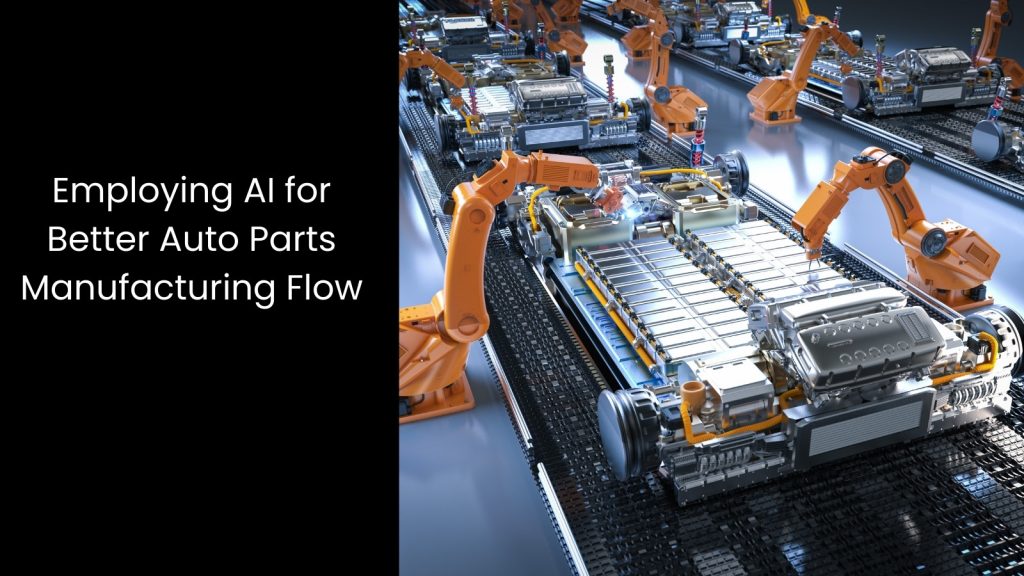In this article, we explore how AI offers multifaceted benefits to auto parts manufacturers in Singapore.
Exploring AI Technology

- There is literally no one in the world who does not know about AI. However, its capabilities are still unknown to many.
- This is the science and engineering of creating smart machines that can perform tasks that usually require human intelligence. These tasks include learning from experience, understanding language, recognising patterns, solving problems, and making decisions.
- AI systems use algorithms and vast amounts of data to learn and improve over time. For example, self-driving cars use AI to navigate roads, avoid obstacles, and follow traffic rules. AI also powers recommendation systems on streaming platforms like Netflix, suggesting shows and movies based on your viewing history. Researchers develop AI to mimic human brain functions, creating neural networks that process information similarly to human neurons. These are some of the real-world examples.
- But how does the business landscape leverage AI? Companies use AI for various purposes, including customer service chatbots, fraud detection in banking, and personalised marketing. AI continues to evolve rapidly, becoming more capable and integrated into everyday life.
- Nowadays, AI has spread its wings across almost every domain. Despite its many benefits, AI also raises ethical concerns about privacy, job displacement, and decision-making transparency. Understanding AI helps us appreciate its potential and address its challenges responsibly.
- As AI technology advances, it will increasingly shape the future, offering new possibilities and transforming various industries.
The Top 4 Benefits of AI for Auto Parts Manufacturers

Product Design and Simulation
They must also consider materials, weight, cost, and durability. These factors create a complex puzzle where changing one piece can affect many others. Moreover, they must balance innovation with practicality, creating parts that are both advanced and reliable. Tight deadlines and budget constraints add to the pressure, making the process even more challenging.
But if this specific industry holds hands with AI technology, it can surely help in this complex process. As you can see, AI-powered design tools can analyse vast amounts of data to suggest optimal designs, materials, and manufacturing processes. These tools can simulate real-world conditions, testing how parts will perform under various scenarios without the need for physical prototypes.
This reduces the time and cost of testing. AI can also identify potential design flaws early in the process, preventing costly mistakes and ensuring higher quality. As it helps automate repetitive tasks, AI allows engineers to focus on more creative aspects of design.
Smart Robotics and Automation
Did you know that producing auto parts involves repetitive tasks that require precision and speed, which humans can struggle to maintain over long periods? Yes, this is where automation helps achieve this by using machines that can work tirelessly without errors. This not only increases production rates but also ensures uniform quality across all parts.
However, AI technology enhances automation through smart robotics. Let us explain how.
These AI-powered robots can learn and adapt to different tasks, making them more versatile than traditional machines. For instance, in assembly lines, smart robots can adjust to new designs and variations in parts without needing extensive reprogramming. This flexibility saves time and money.
AI also enables robots to perform quality inspections, identifying defects with greater accuracy than human eyes. As it can analyse data from production processes, AI can optimise workflows, reduce waste, and improve efficiency. In welding and painting, AI-driven robots can achieve high precision, ensuring that every weld or coat meets exact standards.
What is more, AI helps in predictive maintenance, monitoring the health of robots and machinery to predict when maintenance is needed, and preventing unexpected breakdowns. This keeps the production line running smoothly and reduces downtime.
Customer Demand Forecasting
Manufacturers need to know what parts customers will need and when they will need them to avoid overproduction or shortages. Therefore, AI analyses large amounts of data from various sources, such as sales history, market trends, customer behaviour, and economic indicators. Since it is possible for AI to process this data, it identifies patterns and trends that humans might miss.
For example, AI can spot a rise in demand for certain parts during specific seasons or in particular regions. This helps manufacturers plan their production schedules more effectively. AI also responds quickly to changes in the market. If a new car model becomes popular, AI can quickly adjust demand forecasts for parts related to that model. This real-time analysis helps manufacturers stay agile and responsive.
The best thing about AI-powered forecasting is that the latter reduces the risk of overstocking, which ties up resources and increases storage costs. It also minimises the risk of understocking, which can lead to missed sales opportunities and unhappy customers. Since it is able to predict demand more accurately, manufacturers can optimise their inventory levels, ensuring they have just the right amount of parts on hand. This improves cash flow and reduces waste. Not to mention that AI can segment customers based on their purchasing behaviour, allowing manufacturers to tailor their production and marketing strategies to different groups.
Quality Inspection and Defect Detection
If the auto parts manufacturing industry processes without giving weight to quality, there will be a massive disappointment in the end from the customers.
AI technology can help auto parts manufacturing with quality inspection and defect detection by making the process faster, more accurate, and more efficient. In traditional quality inspection, human inspectors visually check parts for defects, which can be time-consuming and prone to errors. AI-powered systems, however, use advanced image recognition and machine learning algorithms to inspect parts with incredible precision.
These systems analyse images of parts taken by cameras on the production line, identifying even the smallest defects that human eyes might miss, such as tiny cracks or surface irregularities. This ensures that only high-quality parts move forward in the manufacturing process.
No need to say that AI systems work continuously without getting tired, ensuring consistent quality checks throughout the day. They also process data much faster than humans, speeding up the inspection process and allowing for quicker responses to any issues. When AI detects a defect, it can immediately alert workers or even halt the production line to prevent defective parts from proceeding, reducing waste and rework costs.
So, yes, with AI, the auto parts manufacturing domain is highly scalable!
Cerexio Solutions for Auto Parts Manufacturing Domain

Cerexio, as an industry 4.0 expert in the manufacturing industry has a variety of software tools specialised for any manufacturing domain. Our robust solutions such as Manufacturing Execution System, Manufacturing Control Tower, Advanced Warehouse Management System can be tailored and customised according to your business requirements in order to offer the best advantage for you.
Employing AI for Better Auto Parts Manufacturing Flow

Every auto part manufacturer’s dream is to accomplish their business missions with 100% profitability, production optimisation, and customer satisfaction. These are surely possible if they choose to walk down the path of AI in this dynamic world. The right tools from industry experts will bring your business up to the top of the world, beyond doubt.
